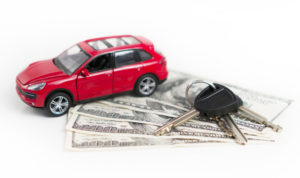 Today’s top story: How to negotiate your way to a richer life. Also in the news: 4 signs we’re in a housing market primed for regret, Medicare and CPAP supplies, and could your health or life insurance rates increase if you’re not vaccinated?
Today’s top story: How to negotiate your way to a richer life. Also in the news: 4 signs we’re in a housing market primed for regret, Medicare and CPAP supplies, and could your health or life insurance rates increase if you’re not vaccinated?
How to Negotiate Your Way to a Richer Life
Learning best practices can help you earn more, get better deals and avoid strife over household finances.
4 Signs We’re in a Housing Market Primed for Regret
It’s a tough time to be a homebuyer.
Does Medicare Pay for CPAP Machines and Supplies?
Medicare Part B covers CPAP, but it requires a sleep test and a trial period.
Will Your Health or Life Insurance Rates Increase If You’re Not Vaccinated?
Insurers have yet to decide.
 Today’s top story: How to minimize credit damage from medical bills. Also in the news: Getting started with qualified opportunity funds, how to turn your side-gig into a full-time business, and what to do if you’re about to lose your federal COBRA subsidy.
Today’s top story: How to minimize credit damage from medical bills. Also in the news: Getting started with qualified opportunity funds, how to turn your side-gig into a full-time business, and what to do if you’re about to lose your federal COBRA subsidy. Today’s top story: How to bounce back from an income drop. Also in the news: 5 tips for fostering a successful hybrid workplace, is the Fed to blame for high home prices, and why right now might be the best time to sell your car.
Today’s top story: How to bounce back from an income drop. Also in the news: 5 tips for fostering a successful hybrid workplace, is the Fed to blame for high home prices, and why right now might be the best time to sell your car. Today’s top story: How to harness your HSA’s superpowers. Also in the news: A scam alerts on the Child Tax Credit, how to avoid costly home selling mistakes, and in a hot used-car market, used electric cars can be a deal.
Today’s top story: How to harness your HSA’s superpowers. Also in the news: A scam alerts on the Child Tax Credit, how to avoid costly home selling mistakes, and in a hot used-car market, used electric cars can be a deal.  Today’s top story: How to know when it’s time to ditch your starter credit card. Also in the news: How to cover yourself against car theft, tips on paying for your wedding, and how to make a budget if you want to freelance full time.
Today’s top story: How to know when it’s time to ditch your starter credit card. Also in the news: How to cover yourself against car theft, tips on paying for your wedding, and how to make a budget if you want to freelance full time.  Today’s top story: 5 tips to keep a landscaping project on time and under budget. Also in the news: The mortgage outlook for June, student loan interest rates to increase July 1st, and how to get Amazon Prime Day prices without a membership.
Today’s top story: 5 tips to keep a landscaping project on time and under budget. Also in the news: The mortgage outlook for June, student loan interest rates to increase July 1st, and how to get Amazon Prime Day prices without a membership. Today’s top story: Prepare for COVID medical bills this year. Also in the news: A new episode of the Smart Money podcast on pandemic savings goals and inheritance taxes, how to save on supplies as kids go back to school, and why your dog needs liability insurance.
Today’s top story: Prepare for COVID medical bills this year. Also in the news: A new episode of the Smart Money podcast on pandemic savings goals and inheritance taxes, how to save on supplies as kids go back to school, and why your dog needs liability insurance.